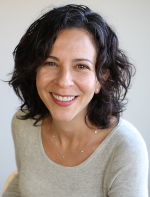What is Hakomi Therapy?
By Tami Linde, MFT, Psychotherapist in Private Practice in Oakland, CA
“Therapy is first about discovering. It’s about who you are and about what your deepest emotional attitudes are. It’s not just about who you think you are. It’s not opinion. It’s not something you can know with the intellect. It’s about who you are in the very heart of yourself. That’s the flavor of psychotherapy, discovering yourself, discovering your real attitudes toward the most important pieces of your life.”
—Ron Kurtz, Hakomi Founder
The Hakomi method relies on the use of mindfulness and body-centered techniques to access the heart of clients’ thoughts and feelings. Hakomi therapy assumes that core material, which is composed of memories, images, and beliefs, manifests itself in not only the mind, but also the body. Examples of core material include:
- “My needs are too much and will be met with rejection.”
- “There is something wrong with me and I don’t deserve to be loved.”
- “I keep seeing my father’s face, looking at me with disappointment. Nothing I do is ever good enough.”
The basic concept of Hakomi is that out-of-date beliefs interfere with our ability to act spontaneously and openheartedly. Because we unconsciously rely on core beliefs, we don’t recognize that they may be interfering with who we want to be and how we want to live our lives.
The Hakomi therapist embodies an attitude of acceptance and curiosity, assisting the client to identify core material and consciously consider how it shapes behavior, perceptions and attitudes. Through establishing mindfulness and using experiential techniques, the therapist supports the client in discovering insights and more useful beliefs. Ultimately, the Hakomi processes will help the client integrate refreshed beliefs into present life experiences, resulting in an enhanced sense of well-being and alleviating suffering.
 About this Contributor: Tami Linde is a licensed Marriage and Family Therapist (MFT) specializing in the treatment of anxiety, depression, and relationship problems. She has fifteen years of clinical experience working with adults, adolescents, and groups, both in private practice and agency settings and currently has a private practice in Oakland, CA, where she sees adults for individual and couples therapy. She has advanced training in several therapy approaches, including Hakomi, Psychodynamic, Cognitive-Behavioral, and Solution-Focused counseling. Prior to her clinical work, she was a Research Associate with the Posttraumatic Stress Disorder Research Group at the San Francisco VA Medical Center/UCSF. She writes: “I am married and have two children. Raising kids has been a wonderful, rewarding experience for me; it also gives me a real-life perspective on the challenges we all face in our family lives.”
About this Contributor: Tami Linde is a licensed Marriage and Family Therapist (MFT) specializing in the treatment of anxiety, depression, and relationship problems. She has fifteen years of clinical experience working with adults, adolescents, and groups, both in private practice and agency settings and currently has a private practice in Oakland, CA, where she sees adults for individual and couples therapy. She has advanced training in several therapy approaches, including Hakomi, Psychodynamic, Cognitive-Behavioral, and Solution-Focused counseling. Prior to her clinical work, she was a Research Associate with the Posttraumatic Stress Disorder Research Group at the San Francisco VA Medical Center/UCSF. She writes: “I am married and have two children. Raising kids has been a wonderful, rewarding experience for me; it also gives me a real-life perspective on the challenges we all face in our family lives.”
For more information about her practice, please visit her website: www.tamilinde.com or contact her at 510-859-4303.

Leave a reply
You must be logged in to post a comment.